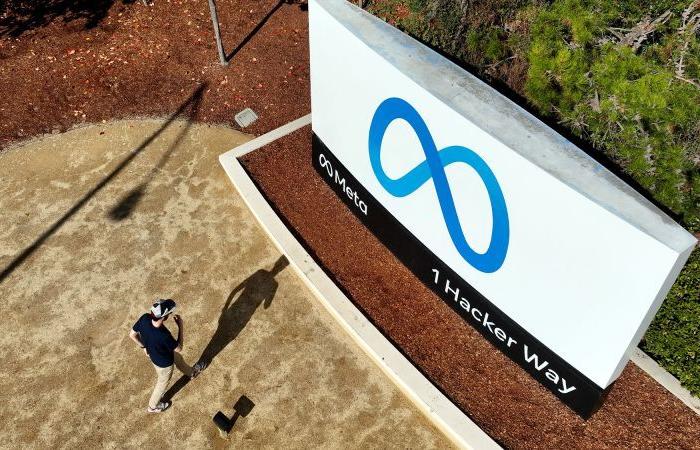CNN
—
Meta is ending its diversity, equity and inclusion programs, known as DEI, the company said Friday, becoming the latest company to pull back from such practices in the wake of pressure from conservative critics and customers.
Meta is eliminating the company’s DEI team, ending “equity and inclusion programs and changing hiring and supplier diversity practices,” according to a company memo obtained by CNN and sent to all global employees by Meta’s vice president of human resources, Janelle Gale.
A spokesperson for Meta confirmed the contents of the memo.
“The legal and policy landscape surrounding diversity, equity and inclusion efforts in the United States is changing,” Gale wrote. “The Supreme Court of the United States has recently made decisions signaling a shift in how courts will approach DEI. It reaffirms longstanding principles that discrimination should not be tolerated or promoted on the basis of inherent characteristics.”
Gale also wrote that the term “DEI” has become “charged” because some believe it suggests “preferential treatment of some groups over others.”
The memo was first reported by Axios.
Meta’s chief diversity officer, Maxine Williams, will take on a new role focused on “accessibility and engagement,” the memo said. The company will also no longer require managers source candidates from unrepresented groups, and it will end efforts to hire minority-owned vendors and suppliers.
“We build the best teams with the most talented people,” Gale wrote. “This means sourcing people from a range of candidate pools, but never making hiring decisions based on protected characteristics (e.g. race, gender etc.),” Gale wrote.
“Instead of equity and inclusion programs,” Gale wrote, Meta plans to build programs “that focus on how to apply fair and consistent practices that mitigate bias for all, no matter your background.”
The end to the DEI programs dovetails with other major changes at the company that critics say cater to the right since President-elect Donald Trump won November’s election. Earlier this week Meta announced it was ending its third-party fact-checking programs in the United States and changing its hateful conduct policies, adding new types of content users can now post on Meta-owned platforms that were previously banned.
-Meta CEO Mark Zuckerberg met with President-elect Donald Trump on Friday at Mar-a-Lago, two sources familiar tell CNN. Meta declined to comment on the meeting between Zuckerberg and Trump.
And Zuckerberg also appeared on the Joe Rogan podcast that same day, saying he’d been working on the changes announced this week “for a long time.”
“The whole point of social media is giving people the ability to share what they want. It goes back to, our original mission is just give people the power to share and make the world more open and connected,” Zuckerberg said.
Zuckerberg said he’s been on a “journey” over the past decade, starting out “very pro-free speech, free expression,” but the 2016 victory of President Donald Trump and then pressure from the Biden administration to moderate Covid-19 misinformation on social media changed his view.
“I kind of think in 2016 and the aftermath I gave too much deference to a lot of folks in the media who were basically saying ‘Okay, there was no way (Trump) could’ve gotten elected except for misinformation. People can’t actually believe this stuff,’” Zuckerberg said.
Zuckerberg said fact checking and content moderation got to the point that it “destroyed trust” in the platform.
At the beginning of the Covid-19 pandemic, Zuckerberg said Meta was heavily pressured by the Biden administration to remove content the administration saw as misinformation on the platform.
“Basically these people from the Biden administration would call up our team and like scream at them and curse, and it’s like, these are documented, it’s all kind of out there,” Zuckerberg said, adding that the administration tried to get Meta to remove a meme that suggested people who get the Covid-19 vaccine would end up being part of class action lawsuits.
“We’ve been pressure-tested on this stuff on the last 8 to 10 years with these huge institutions just pressuring us, and I feel like this is the right place to be going forward,” he said.
CNN’s Kaitlan Collins, Kate Sullivan and Clare Duffy contributed reporting.






